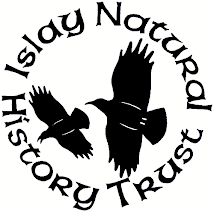 Kick off the European Year of Volunteering in 2011 with a resolution to help wildlife in Scotland, suggests Scottish Natural Heritage (SNH).
Kick off the European Year of Volunteering in 2011 with a resolution to help wildlife in Scotland, suggests Scottish Natural Heritage (SNH).A recent SNH report found that only 23% of organisations involved with wildlife surveys felt they had enough volunteers to meet their needs and 60% found geographic coverage a problem.
Wildlife recording has a long and important history in the UK for science and conservation, and has always been led by volunteers. Amateur collectors had a key role in developing natural history collections in the 19th and early 20th century and were the first biological reporters, which also spawned many local nature history societies.
Peter Rawcliffe, SNH’s Head of People and Places, said: “Volunteers play a crucial part in conserving Scotland’s wildlife. For example, we need to know if the number of certain birds, animals or insects is dropping, so we can take quick measures to protect them. Volunteer surveyors play a big role in getting this information.
“If you love nature, surveying is a great hobby. Most organisations need help throughout the country, but if you live in a remote spot, all the better – surveys need to cover all of Scotland, and many organisations have trouble finding volunteers to cover remote areas.”
The report also asked volunteers why they donated their time as wildlife surveyors. Most said they wanted to contribute to wildlife conservation and research. They also commented: “It’s great fun,’ ‘I can do it anywhere, anytime,’ it gives ‘personal satisfaction, a positive aspect to our daily walks,’ and it provides ‘health and relaxation – a great hobby – always something of interest wherever you go.’
There are many organisations which need volunteers, including local ranger services and wildlife societies, as well as national organisations such as Biological Recording in Scotland (BRISC), Scottish Wildlife Trust (SWT), RSPB, British Trust for Ornithology (BTO), Butterfly Conservation, Botanical Society of the British Isles (BSBI), Plantlife, British Lichen Society, British Bryological Society, the Scottish Ornithologists’ Club, the Bat Conservation Trust, British Dragonfly Society, Saving Scotland’s Red Squirrels, and the Bumblebee Conservation Trust.
There are also regional and local groups throughout Scotland, such as the Inverness Bat Group, the Highland Biological Recording Group, Curracag (the Outer Hebrides Natural History Society), the Hebridean Whale and Dolphin Trust, the Glasgow Natural History Society, Edinburgh Natural History Society and the Paisley Natural History Society.
For general advice on where to volunteer across Scotland, local records centre are usually a good place to start, including the North East Scotland Biological Records Centre, Fife Nature Records Centre, The Wildlife Information Centre for the Lothians and Borders, Dumfries and Galloway Biological Records Centre, and the Shetland Biological Records Centre.
As well, British Trust for Conservation Volunteers (BTCV) and other organisations offer training in surveying and recording wildlife, much of which is free to volunteers. BTCV Scotland has been involved in biological recording projects for a number of years now. The charity delivers a range of training workshops, many of them free, which supports local community bio-recorders, allowing them to develop essentials skills and the confidence to become established recorders. As well as these workshops, BTCV is planning a number of BioBlitz events, and will make 2011 the year that every one of the 10,000 volunteers it engages with has the opportunity to gain experience of wildlife surveying.
ohn McFarlane, BTCV Scotland’s Environment Development Officer said: “Once people get the recording bug, they’re often hooked for life! But the journey of an established and confident recorder can be long and often arduous, requiring a lot of support, training and mentoring from key conservation organisations such as BTCV. We’re aiming to provide continuing support and more opportunities for individuals and communities throughout Scotland to try out wildlife recording and develop a wide range of skills that they will enjoy putting into practice.
“Using the skills and infectious enthusiasm of our Natural Talent and Natural Communities Apprentices, we will inspire and support people from all walks of life who want to begin their recording journey.”
The BTCV Natural Talent and Natural Communities programmes provide 12-18 month apprenticeships to develop taxonomic and habitat specialism and environmental community engagement skills. For more information, see www.BTCV.org/scotland
 |
| Greylag geese (Anser anser) - Photo: Scottish Natural Heritage |

















No comments:
Post a Comment